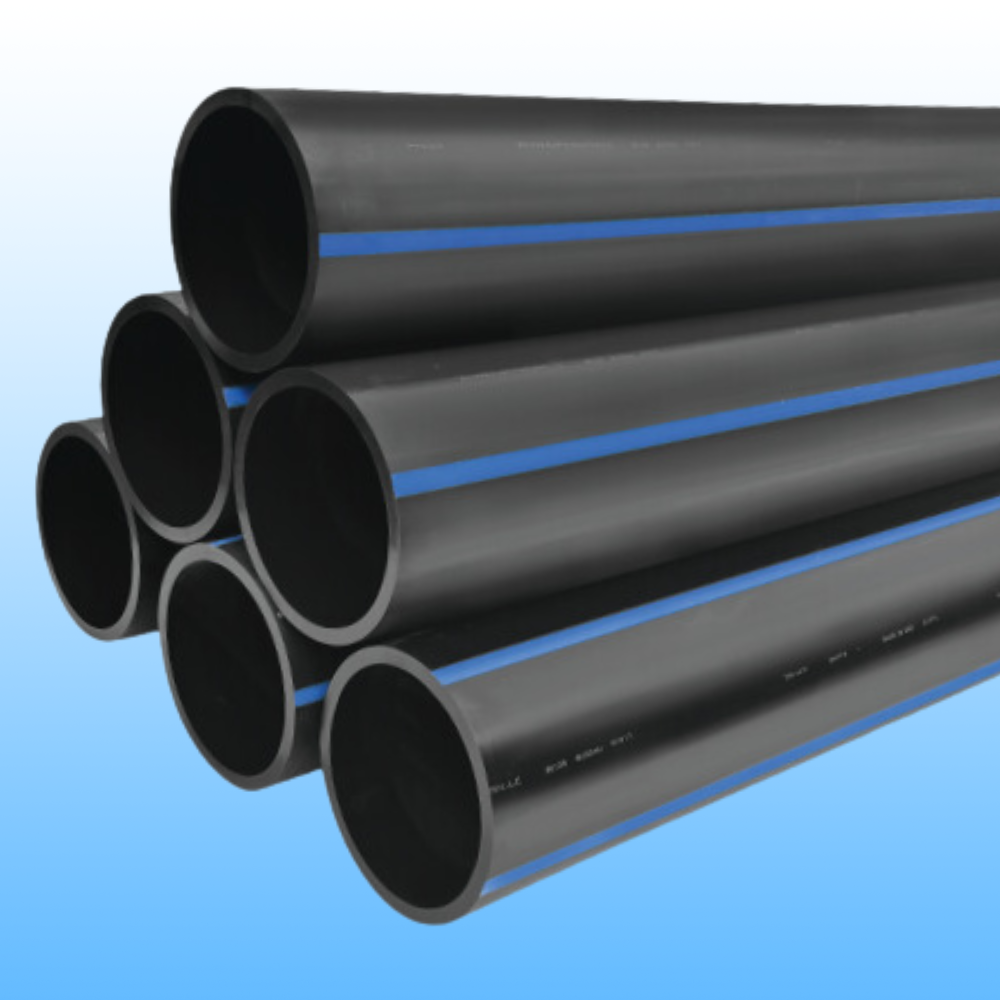Exploring American Plastics HDPE Pipe Manufacturing and Its Role in Modern Infrastructure
Comprehending the Trick Advantages of HDPE Pipeline for Water and Wastewater Monitoring
Using HDPE pipeline in water and wastewater monitoring presents countless benefits that merit consideration. Its exceptional sturdiness and long lifespan make it a preferred option for many jobs. Furthermore, the material's resistance to rust and chemical damage enhances its reliability in various environments. However, the advantages extend beyond just longevity and resistance. Exploring its cost-effectiveness and ecological impact exposes even a lot more engaging reasons for its extensive fostering in modern-day facilities
Outstanding Durability and Durability

HDPE pipe attracts attention for its exceptional sturdiness and long life, making it a preferred choice in water administration systems. Created from high-density polyethylene, these pipelines can withstand considerable stress and tension, making certain reliable efficiency with time. Their robust nature permits them to endure extreme environmental problems, consisting of temperature level changes and dirt movements, which can cause other materials to stop working.
The lifespan of HDPE pipelines commonly goes beyond 50 years, giving an affordable solution for districts and industries alike. Furthermore, the material's lightweight buildings streamline installment, minimizing labor expenses and timeframes. This durability decreases the requirement for constant repairs or substitutes, additionally boosting its economic allure.
In water administration applications, the integrity of HDPE pipes suggests less interruptions and improved service continuity, making them important to lasting facilities development. The combination of resilience and long life strengthens HDPE's duty as a keystone in effective water management services.

Resistance to Deterioration and Chemical Damages
While several materials catch deterioration and chemical damage gradually, HDPE pipelines display exceptional resistance, making them optimal for different water monitoring applications. This resilience comes from the molecular structure of high-density polyethylene, which is naturally non-reactive and does not rust like metals or break down from direct exposure to harsh chemicals. Consequently, HDPE is extremely reliable in atmospheres with hostile substances, such as wastewater systems that may include acids, bases, and natural solvents.
In addition, HDPE pipelines can withstand ecological aspects such as dirt level of acidity and saline problems, additionally improving their viability for varied applications (hdpe pipe in stock Midland TX). Their capability to preserve architectural honesty gradually minimizes the danger of leakages and failures, which is vital in guaranteeing the safety and security and integrity of water circulation and wastewater management systems. The resistance to rust and chemical damages considerably adds to the total efficiency and long life of HDPE piping services.
Cost-Effectiveness and Economic Benefits
When thinking about the financial effects of water monitoring systems, the cost-effectiveness of HDPE pipes becomes apparent. These pipes use lower installment and upkeep prices contrasted to standard products like metal or concrete. Their lightweight nature simplifies transport and setup, causing lowered labor expenditures. Additionally, HDPE pipes show a long life-span, commonly surpassing 50 years, which equates to less replacements and long-term savings.
In addition, the resistance of HDPE to rust and chemical damage reduces the requirement for expensive repair work and substitutes. The pipelines likewise support reliable water circulation, reducing power prices linked with pumping systems. By alleviating leaks and water loss, HDPE pipes add to substantial financial advantages for communities and sectors alike. In general, the preliminary investment in HDPE piping can yield substantial monetary returns over the life-span of the water administration system, making it a prudent selection for lasting infrastructure development.
Environmental Sustainability and Minimized Influence

Convenience and Adaptability in Installation
As a result of their distinct homes, HDPE pipelines supply amazing convenience and adaptability in installment, making them ideal for a wide variety of applications. Their lightweight nature permits for simpler handling and transport, decreasing labor costs and setup time. HDPE pipelines can be curved and shaped to fit various terrains and task needs, which is especially beneficial in testing environments.
In addition, their resistance to corrosion and chemical damages allows for installment in diverse setups without the demand for specialized protective coverings. The capability to fuse joints develops a continual, leak-free system, enhancing the overall honesty and dependability of the installment. HDPE's flexibility additionally suits ground activity, decreasing the danger of damage in areas vulnerable to changing dirt. In general, these attributes make HDPE pipes not just functional but additionally a preferred selection for water and wastewater monitoring systems.
Often Asked Questions
How Does HDPE Pipeline Compare to PVC in Water Administration Applications?
HDPE pipe supplies superior versatility, resistance to rust, and resilience compared to PVC. Its lighter weight assists in easier installment, while its lengthy life expectancy decreases substitute prices, making HDPE a favored selection in water management applications.
What Is the Lifespan of HDPE Piping Under Common Conditions?
Under normal problems, HDPE pipelines can have a life-span ranging from 50 to 100 years. Their longevity and resistance to corrosion add to their long-lasting efficiency in numerous applications, making them a trustworthy choice for framework.
Are HDPE Pipeline Recyclable After Their Service Life?
Yes, HDPE pipes are recyclable after their life span. Pipe Supplier American Plastics Midland. They can be processed and repurposed right into brand-new items, greatly minimizing environmental impact and promoting sustainability within the industry, making them an eco-friendly choice for piping services
What Is the Installation Process for HDPE Pipes?
The installment process for HDPE pipes entails website prep work, trenching, pipe fusion or mechanical signing up with, backfilling, and pressure screening. Appropriate strategies assure a resilient and reliable system for moving water and wastewater efficiently.
Can HDPE Pipeline Be Made Use Of for Both Safe And Clean and Non-Potable Water Systems?
Yes, HDPE pipelines can be utilized for both potable and non-potable water supply. Their flexibility, durability, and resistance to deterioration make them appropriate for numerous applications, making sure risk-free and effective transportation of water in different contexts.